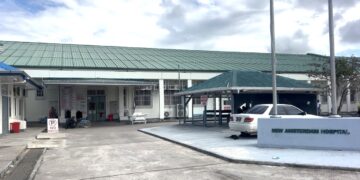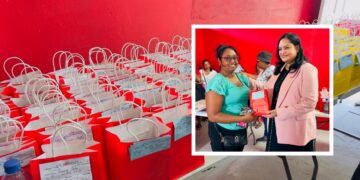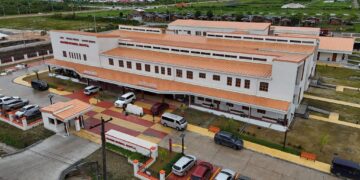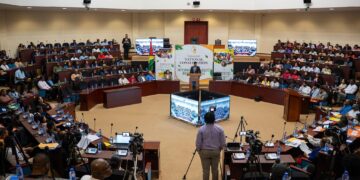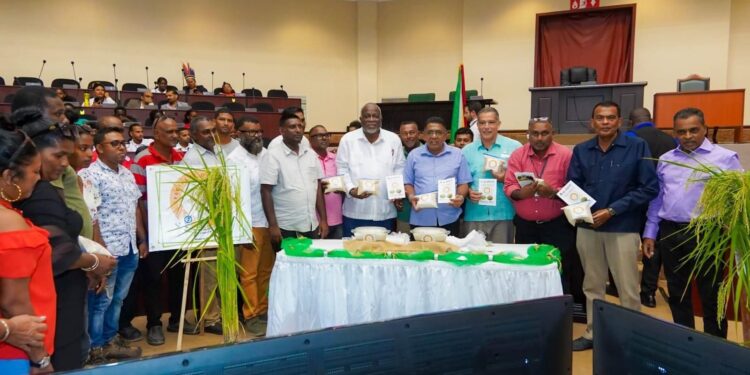Prime Minister Brigadier (Ret’d) the Honourable Mark Phillips says that the rice industry has proven to be indomitable, and it has significantly contributed to the agriculture sector in Guyana.
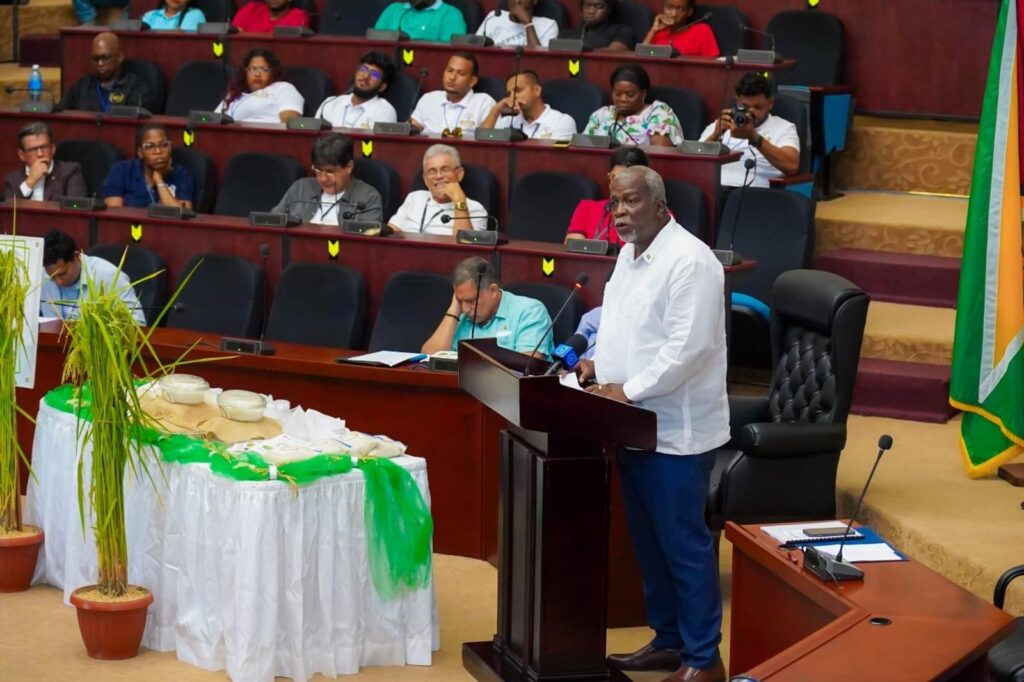
He stated, “The rice industry, over the years, has proven to be indomitable, significantly contributing to the agricultural sector while simultaneously upholding our food security agenda and providing employment opportunities to rural communities.”
The Prime Minister made the statements during his address at the unveiling of the Ministry of Agriculture’s latest achievement, the GRDB IICA-17 – the new bio-fortified rice variety.
The launch of the rice variety, which was developed by the Inter-American Institute for Cooperation on Agriculture (IICA), The Latin American Fund for Irrigated Rice (FLAR) and the International Center for Tropical Agriculture (CIAT), took place during the 3rd Regional Agri-Investment Forum and Expo, at the Arthur Chung Conference Centre, at Liliendaal on Saturday.
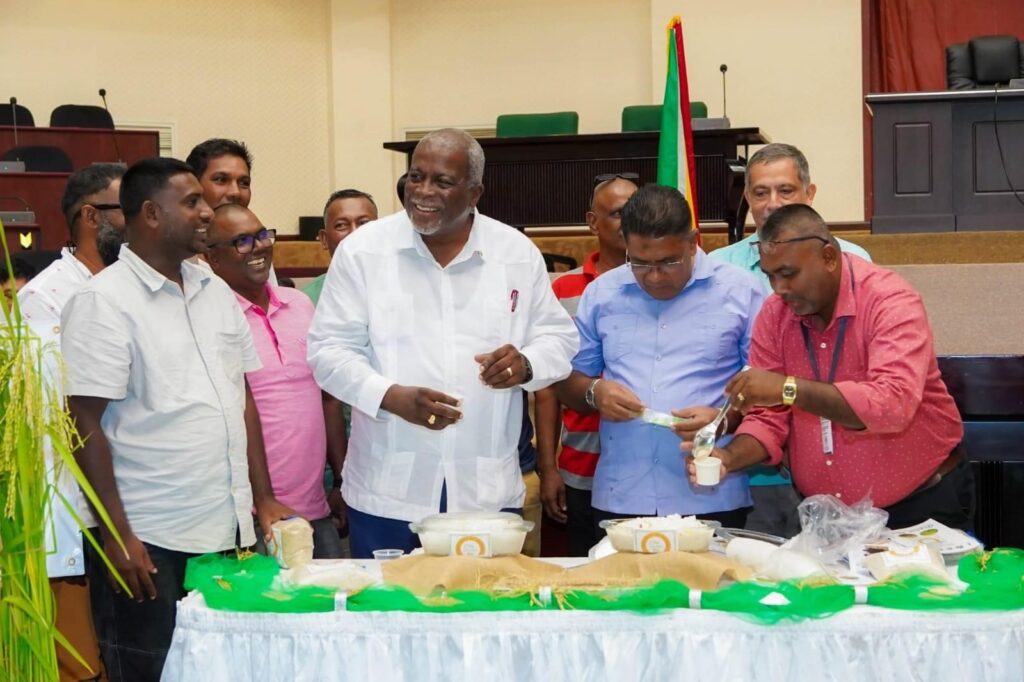
During his feature address, the Prime Minister explained that the government has set ambitious targets for rice production – a 12% increase from 559,789 metric tons in 2021 to 625,092 metric tons in 2023. Factors contributing to this growth include increased agricultural credit, both public and private sector investment, improved seed quality and fertilisers, advancement in research and development, and better infrastructure such as access roads, drainage systems, and irrigation.
The Prime Minister explained that the government is committed to enhancing the capabilities of the Guyana Rice Development Board (GRDB) to conduct the required research and introduce innovative varieties. He added that “on an annual basis, the government allocates over $300 million to promote production.”
Importantly, he highlighted that conventional breeding methods were used to produce this variety rather than genetically modified organisms (GMOs). This process, he noted, can result in higher levels of zinc accumulation in the grains, providing minerals needed for good cellular and immune health.
PM Phillips explained, “One-third of the human population, particularly children and women, suffer from zinc deficiency-related health problems. An adequate intake of zinc daily is vital for normal human function. Importantly, this variety was developed using conventional breeding methods, making it a non-genetically modified organism.”
He highlighted too, that this rice variety has opportunities in international markets where healthy, nutrient-rich rice is in demand, adding that agriculture is no longer solely focused on increasing grain yield and crop productivity but also on enhancing health.
“We are also placing emphasis on improving human health. Agriculture is now transitioning towards nutrient-rich food crops, notably cereals, to help combat ‘hidden hunger’ or ‘micronutrient malnutrition’. In the fight against hidden hunger, biofortified rice provides a sustainable alternative option to chemical food additives.”
According to the Prime Minister, the biofortified rice variety not only addresses zinc deficiency, but it is also economically beneficial for farmers, as it demonstrates excellent yield potential of 6-8 tons per hectare.
“In addition to being highly nutritious, this rice is a good economical choice for farmers as it possesses excellent early vigor, a good plant type and high yield potential…that will contribute to increasing the economic growth of our country through preferential prices and increase market value.”
Notably, Guyana will become the first country in CARICOM and Latin America to cultivate biofortified rice.
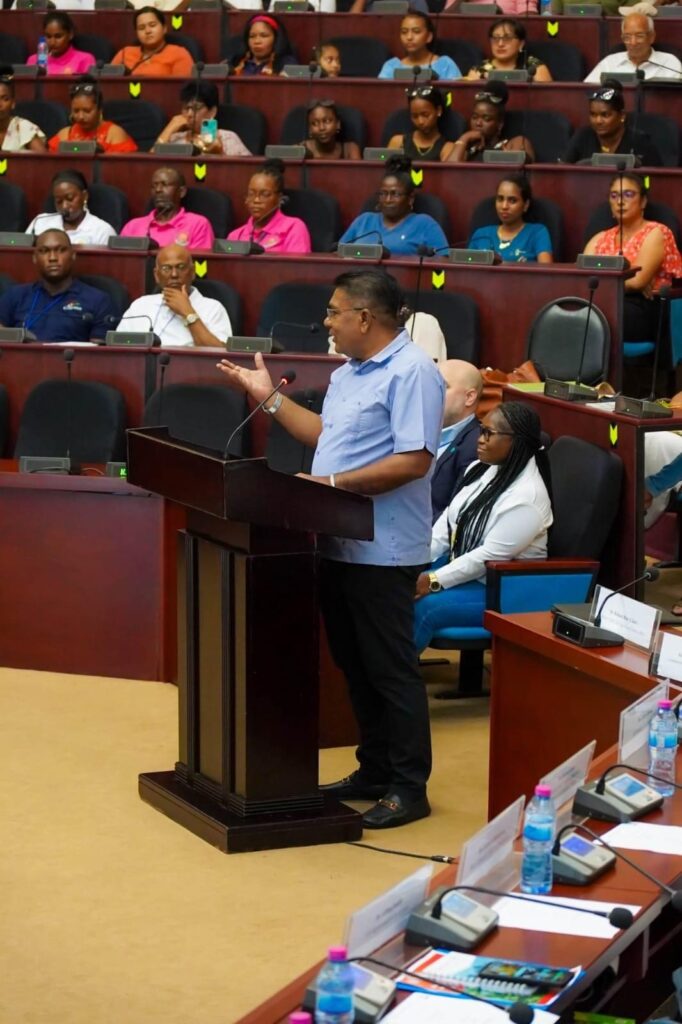
Minister of Agriculture, the Honourable Zulfikar Mustapha, who also addressed the event, emphasized the significance of this new variety as the nation leads the way in the Region and in Latin America. He expressed hope for large-scale cultivation and highlighted the potential to increase farmers’ income and contribute to the overall improvement of public health.








